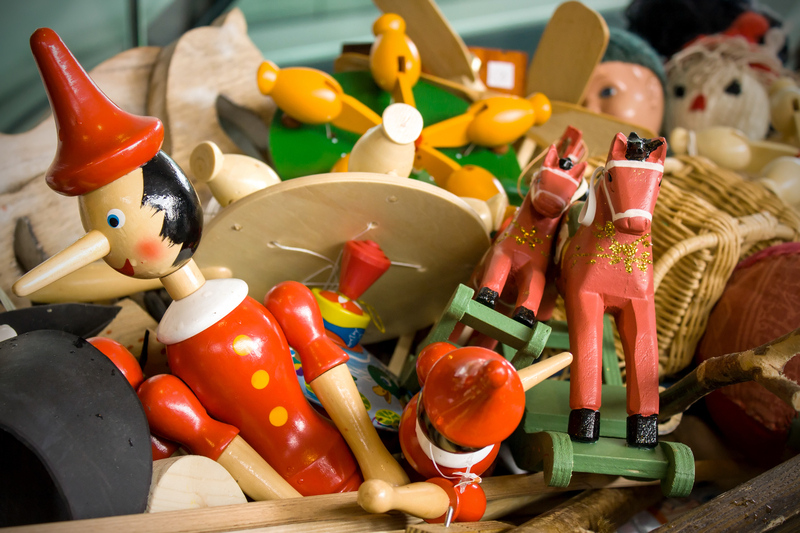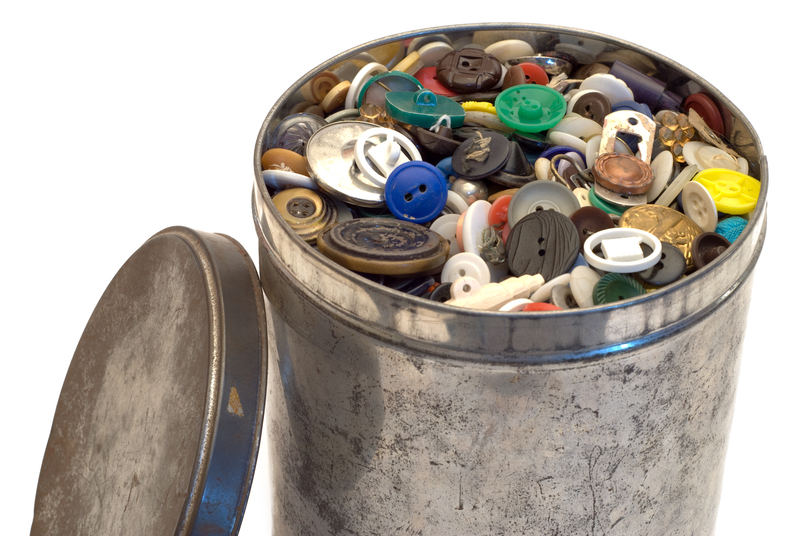Closing the Loop on Refrigerator Disposal
Posted on 03/07/2024
When it comes to household appliances, refrigerators are one of the most essential and frequently used. However, what many people don't realize is that disposing of old refrigerators can have a significant impact on the environment. The improper disposal of refrigerators can lead to harmful substances such as CFCs and HCFCs being released into the atmosphere, contributing to ozone depletion and climate change. In order to address this issue and promote a more eco-friendly solution, the concept of closing the loop on refrigerator disposal has emerged.
What is Closing the Loop on Refrigerator Disposal?
Closing the loop on refrigerator disposal refers to a process where old refrigerators are recycled or disposed of in an environmentally responsible manner. This includes properly removing and disposing of harmful refrigerants, foam insulation, and other materials with potential environmental impacts. The goal is to create a circular system where old refrigerators are recycled into new products, reducing the need for raw materials and minimizing waste.

The Importance of Closing the Loop on Refrigerator Disposal
Refrigerators contain various materials that can be harmful to the environment if not disposed of properly. These include chlorine-based refrigerants like chlorofluorocarbons (CFCs) and hydrochlorofluorocarbons (HCFCs), which contribute to ozone depletion and climate change. Additionally, foam insulation used in older models may contain ozone-depleting substances such as hydrochlorofluorocarbons (HCFCs). By closing the loop on refrigerator disposal, these harmful substances can be safely removed and prevented from entering our atmosphere.
Moreover, recycling old refrigerators reduces the need for raw materials used in manufacturing new ones, such as plastic and metal. This results in significant energy savings and reduces carbon emissions associated with production processes. It also helps conserve natural resources and minimize waste dumped into landfills.
How Does Closing the Loop Work?
The first step in the closing the loop process is to properly dispose of the refrigerant. This involves capturing and storing the refrigerant in specialized containers before sending it to a facility for processing. The next step is to remove the foam insulation, which can also contain harmful substances. It is then crushed and sent to recycling facilities where it can be used as a raw material for new products, such as plastic pipes or insulation.
The remaining components, including metal, glass, and plastics, are also recycled into new products, closing the loop on refrigerator disposal. For example, metals can be melted down and used for manufacturing new appliances, and glass can be turned into new bottles or jars. Plastic parts can also be shredded and reused in various products.
Pros and Cons of Closing the Loop on Refrigerator Disposal
As with any solution, there are pros and cons to consider when it comes to closing the loop on refrigerator disposal.
Pros:
o Environmental benefits: By properly disposing of old refrigerators, we can prevent harmful substances from entering our atmosphere, contributing to climate change and ozone depletion.
o Resource conservation: Recycling old refrigerators reduces the need for raw materials, conserving natural resources and minimizing waste.
o Energy savings: Recycling requires less energy compared to manufacturing new products from scratch, resulting in significant energy savings.
Cons:
o Technological limitations: Not all refrigerators can be easily recycled due to outdated technology or hazardous materials. This can make it challenging to close the loop on certain models.
o Cost: The process of closing the loop on refrigerator disposal is more complex and costly compared to traditional disposal methods.
o Lack of awareness: Many people are unaware of this eco-friendly solution and may still opt for traditional disposal methods.
Tips for Proper Refrigerator Disposal
If you're looking to dispose of your old refrigerator in an environmentally responsible manner, here are some tips to keep in mind:
o Contact your local waste management agency or recycling center to inquire about proper disposal methods.
o If possible, consider donating your old refrigerator to a charity or organization that can make use of it.
o If you're replacing your old refrigerator with a new one, ask the retailer if they offer a take-back program for the old appliance.
o Always ensure that the refrigerant is safely removed and disposed of before recycling or disposing of the refrigerator.

Takeaways
Closing the loop on refrigerator disposal is an important step towards promoting a more sustainable and eco-friendly society. By properly disposing of old refrigerators, we can reduce harm to our environment, conserve resources, and save energy. It also presents an opportunity for manufacturers to incorporate recycled materials into new products, creating a more circular economy.
Conclusion
In conclusion, closing the loop on refrigerator disposal is not only beneficial for our environment but also for our future. We must recognize the importance of responsible waste management and do our part in promoting eco-friendly solutions. So next time you need to dispose of an old refrigerator, remember the concept of closing the loop and opt for an environmentally responsible method. Let's work together towards a greener and more sustainable world.
Latest Posts
Innovations Aiming to Reduce Ocean Waste
Reducing Waste in Christmas Celebrations




 020 3743 9508
020 3743 9508


